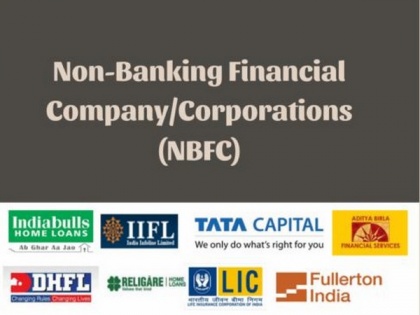Coronavirus surge can delay Indian NBFIs' recovery: Fitch
By ANI | Published: April 8, 2021 12:05 PM2021-04-08T12:05:21+5:302021-04-08T12:15:02+5:30
India's non-bank financial institutions (NBFIs) face renewed asset quality and liquidity risks amid a second wave of coronavirus infections, according to Fitch Ratings.

Coronavirus surge can delay Indian NBFIs' recovery: Fitch
India's non-bank financial institutions (NBFIs) face renewed asset quality and liquidity risks amid a second wave of coronavirus infections, according to Fitch Ratings.
These challenges are likely to increase if recent restrictions to contain the pandemic are expanded or prolonged, leading to greater economic and operational disruption.
Fitch revised India's GDP forecast for the fiscal year ending March 2022 (FY22) to 12.8 per cent in its March Global Economic Outlook from 11 per cent in the previous forecast in December due to the unexpectedly strong rebound in economic activity in late 2020 and early 2021.
The forecast revision incorporated expectations of a slowdown in 2Q21 due to the flare-up in new coronavirus cases. However, an increase in the rate of infections and broadening of social distancing restrictions pose downside risks to its projections.
A key hotspot is Maharashtra, the state with the largest economic contribution in India at 13 to 14 per cent of national GDP. Maharashtra introduced stricter social-distancing measures over the weekend in response to rising coronavirus cases, including weekend curfews and weekday activity restrictions till end-April 2021.
Several other states -- Gujarat, Punjab, Delhi and Chhattisgarh which together account for about 16 per cent of national GDP -- have also implemented additional restrictions, including night curfews.
The economic impact of these curbs will depend on their duration and severity. Expanded curbs can derail the fragile recovery in India's NBFI sector since a nation-wide lockdown was gradually relaxed from mid-2020.
SMEs, commercial vehicle operators, microfinance and other wholesale borrowers remain at greater risk of stress in this environment, particularly as financial buffers would have narrowed after the severe economic shock over the past year.
Production and supply chains remain susceptible to labour shortages if the large-scale urban-to-rural labour migration in 2020 recurs.
Against this, Fitch said authorities have gained experience in balancing the trade-off between tighter restrictions and maintaining economic activity over the past year. The national government and authorities in several states have indicated that fresh restrictions will not be as extensive as those in April to June 2020, particularly as vaccine rollout progresses.
Consumers and businesses are also likely to better adapt their economic activity to the second wave of restrictions, as seen in other countries. Regulators appear keenly aware of the credit and liquidity implications of any broad, extended movement curbs, while NBFIs' day-to-day operations are also likely to be able to continue under the latest rules.
A resurgence in asset-quality pressure for NBFIs can lead to renewed funding strains for the sector, particularly as many government schemes that provided funding relief to NBFIs in 2020 have expired. These include the Partial Credit Guarantee scheme supporting asset-backed securitisation and Special Liquidity Scheme providing government-guaranteed short-term funding relief.
Meanwhile, the extension of the Emergency Credit Line Guarantee Scheme for SMEs till June will offer such borrowers further breathing room.
Fitch-rated NBFIs have pan-India operations that are often focused on rural geographies, which may be less affected by the recent measures.
( With inputs from ANI )
Disclaimer: This post has been auto-published from an agency feed without any modifications to the text and has not been reviewed by an editor
Open in app